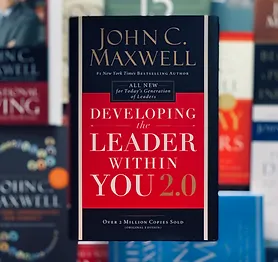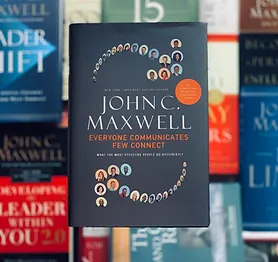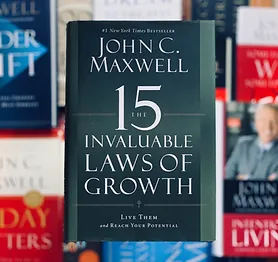Leadership Development Mastermind Groups
The term “mastermind group” may be unfamiliar to many of us, however, it is often one of the most powerful tools we can use to take our personal development to the next level.
Napoleon Hill first introduced the term in the 1920s and went on to expand the definition a decade later in his book Think and Grow Rich. He described the principles of the group as, “Coordination of knowledge and effort, in a spirit of harmony, between two or more people, for the attainment of a definite purpose… No two minds ever come together without, thereby, creating a third, invisible, intangible force, which may be likened to a third mind.” Simply put, two minds are better than one.
In the best mastermind groups, people come together with like-minded goals and values to offer and obtain feedback, discuss personal and professional experiences, and to have a safe place to tackle issues and problems that they contend with. The experience of being a part of a group like this inspires us to grow leaps and bounds.
Developing the Leader Within You 2.0
Registration Fee including Materials: The best part is that this is completely FREE.($125.00 value)
 I would like to take this opportunity to introduce you to Faithworks Leadership. I am launching an online presence through Mastermind Groups offered to individuals and organizations.
I would like to take this opportunity to introduce you to Faithworks Leadership. I am launching an online presence through Mastermind Groups offered to individuals and organizations.
I am offering a complimentary 6 week Virtual Mastermind Group on Zoom as part of the John Maxwell Team to a small group that I would like for you to consider participating in based on John Maxwell’s best selling book, Developing the Leader Within You 2.0.
Topics Include:
- The Definition of Leadership: Influence
- The Key to Leadership: Priorities
- The Foundation of Leadership: Character
- The Ultimate Test of Leadership: Creating Positive Change
- The Quickest Way to Gain Leadership: Problem Solving
- The Extra Plus in Leadership: Attitude
- The Heart of Leadership: Serving People
- The Indispensable Quality of Leadership: Vision
- The Price Tag of Leadership: Self-Discipline
- The Expansion of Leadership: Personal Growth
There is a nominal fee for the book if you wish to purchase it which you can secure online at a book retailer like Amazon.com, Alibris.com or through your local book store like Barnes and Noble. This small investment will reap great benefits to you upon the completion of the mastermind study.
15 Invaluable Laws of Growth
 “Live Them and Reach Your Potential!”– Are there tried and true principles that are always certain to help a person grow? John Maxwell says the answer is “Yes”. He has been passionate about personal development for over fifty years, and for the first time, he teaches everything he has gleaned about what it takes to reach our potential. This program will help you to become a lifelong learner whose potential keeps increasing and never gets “used up.”
“Live Them and Reach Your Potential!”– Are there tried and true principles that are always certain to help a person grow? John Maxwell says the answer is “Yes”. He has been passionate about personal development for over fifty years, and for the first time, he teaches everything he has gleaned about what it takes to reach our potential. This program will help you to become a lifelong learner whose potential keeps increasing and never gets “used up.”
“The 15 Invaluable Laws of Growth” will bring focus to the areas of your life where you know you need to change & grow, but perhaps you haven’t been taking action. Not only is the content of this program incredible and highly-actionable, but the exercises, thoughts, and provoking questions of each session will force you to dig deeper and make the positive changes you desire.
At the end of the program “The 15 Invaluable Laws of Growth”, through active listening and interactive exercises, you will be able to understand and apply the 15 laws of growth to:
- Improve your personal awareness to next levels,
- Develop and plan for your potential,
- Improve your personal qualities and skills, and
- Broaden your knowledge and influential zones.
Who should attend?
Anyone who is interested in personal development and reaching your full potential.
Everyone Communicates, Few Connect
 “Only One Thing Stands Between You and Success. It Isn’t Experience. It Isn’t Talent.”
“Only One Thing Stands Between You and Success. It Isn’t Experience. It Isn’t Talent.”
World-renowned leadership expert John C. Maxwell says if you want to succeed, you must learn how to connect with people. And while it may seem like some folks are just born with it, the fact is anyone can learn how to make every communication an opportunity for a powerful connection. In Everyone Communicates, Few Connect, Maxwell shares the Five Principles and Five Practices to develop the crucial skill of connecting, to include:
- Finding Common Ground
- Keeping Your Communication Simple
- Capturing People’s Interest
- Inspiring People
- Staying Authentic in all Your Relationships
Connecting goes beyond words. In fact, more than 90% of the impression that we often convey has nothing to do with what we actually say! When thought, emotion, and action are congruent, connecting goes beyond what we say because we are now expressing what people can feel, and we are connecting with them more than just verbally. “If you want to succeed, talent isn’t enough, education isn’t enough, the experience isn’t enough…. only one thing stands between you and your full potential and that is the ability to connect!” -John Maxwell
The ability to connect with others is a major determining factor in reaching your full potential. It’s no secret! Connecting is a skill you can learn and apply in your personal, professional, and family relationships- and you can start now by taking this course!
Connect with Us
For more information or to connect with us on our Mastermind Groups please let us know what you are interested in.

 “Live Them and Reach Your Potential!”
“Live Them and Reach Your Potential!”